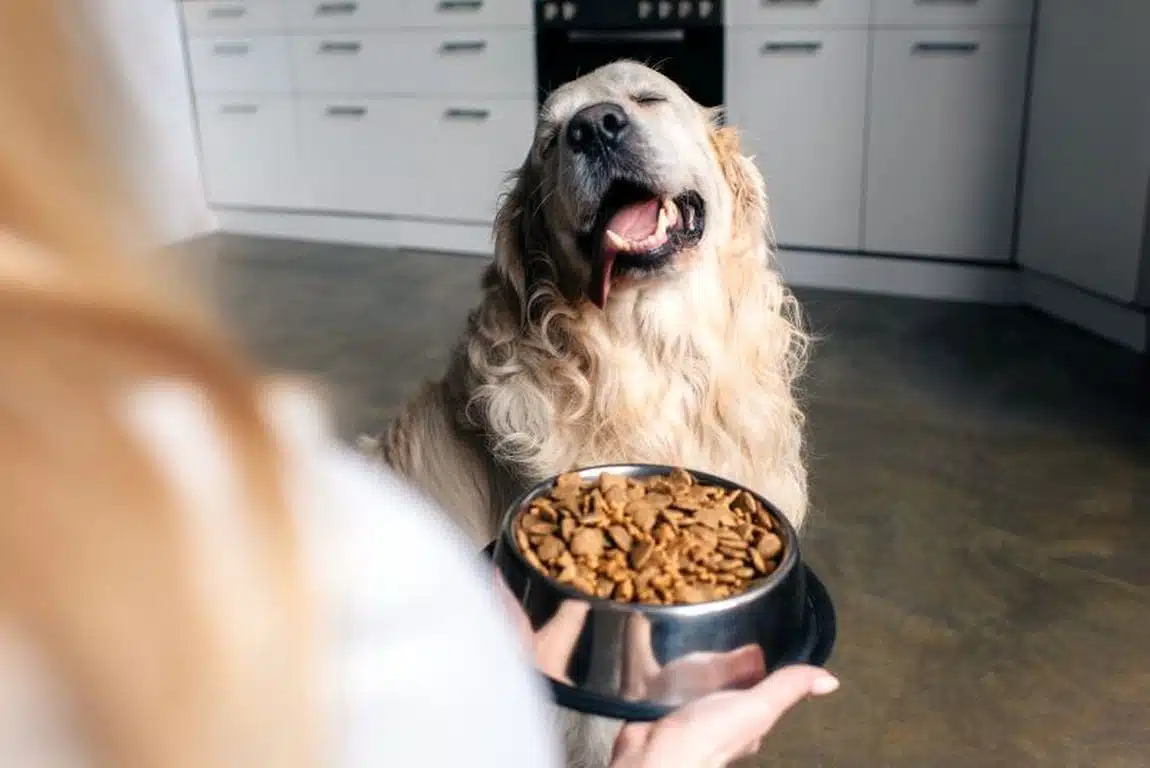Can dogs eat French fries? If you want to share a treat from the drive-thru with your dog, you probably ask this question. Can dogs eat French fries like humans? The answer is yes, and most dogs can eat a few French fries on rare occasions. Fries, on the other hand, are extremely unhealthy for dogs and provide no nutritional value.
While most dogs can eat some fries, they shouldn’t, and it’s best if you avoid giving them any fries at all. Eating French fries regularly can have serious health consequences, and some dogs should never eat any French fries because they can become ill. Always consult your veterinarian before feeding human food to your dog. Here’s what you should know about giving dogs French fries.
Why Are French Fries Bad for Dogs?
The common ingredients in French fries are not toxic to dogs and are all digestible in small amounts. However, this does not mean they are good for dogs. Eating too many French fries over time can lead to serious health problems in dogs. In the short term, they can also cause problems for your dog.
Of course, the main ingredient in French fries is potatoes. Potatoes aren’t necessarily bad for dogs, but they are high in carbohydrates, which are difficult for dogs’ digestive systems to process.
Potatoes can cause allergies or sensitivities in some dogs. I had a dog who would vomit or have diarrhea after just one fry or chip, so some dogs can’t eat any potatoes at all. Oil is another common ingredient in fries. Although some oils, such as fish oil, are beneficial to dogs, the oil used in French fries is typically canola or vegetable oil. This oil is bad for dogs and adds a lot of trans and saturated fats to french fries.
Too much fat can cause digestive upset in the short term and contribute to long-term conditions such as obesity, pancreatitis, or diabetes. Excessive fat consumption can also cause bloat in some dogs, which is a potentially fatal condition.
Salt is another common ingredient in French fries. Depending on your dog’s weight, it would probably take quite a few fries with a lot of salt on them for him to get salt poisoning. However, fries are frequently very salty, and too much salt can cause dehydration, excessive thirst, and urination changes in the short term. Excessive salt consumption can cause kidney problems over time.
Can Dogs Eat French Fries?
If your dog ate a couple of french fries from your plate, they are unlikely to have a toxic reaction. However, this human food contains no nutritional value that will benefit your dog’s health, and excessive consumption may result in health problems. French fries are high in salt, fat, and carbohydrates, which can lead to weight gain in dogs.
Because of their extremely high salt content, restaurant or fast food fries can be dangerous to dogs. Furthermore, restaurant-prepared fries frequently contain seasonings that are harmful to dogs, such as garlic or onion powder.
Instead of a french fry from the table, give your dog a different human food (such as blueberries, lentils, or veggies) to enjoy as a healthy treat. Dog treats are also a healthy option for meeting your pup’s specific needs. Remember that a few portions of dedicated dog food should provide the majority of your dog’s calories.
5 Dangers of Feeding Your Dog French Fries
Some of the health risks associated with feeding french fries to your dogs are as follows:
#1. Allergic reactions:
Fresh or fried potatoes can both cause allergic reactions in some dogs. (However, when cooked properly, sweet potatoes are safe to feed to your dog.) If your dog eats potatoes by accident, keep an eye out for symptoms of an allergic reaction (such as hives or swelling).
#2. Salt content complications:
French fries contain a lot of salt, and while your dogs would have to eat a lot of them to get salt poisoning (which can be fatal), the risk exists in small dog breeds. Even a slight increase in your dog’s regular salt consumption can cause dehydration, thirst, high blood pressure, and increased urination. Furthermore, condiments like ketchup contain salt and sugar, both of which are harmful to your dog.
#3. Inflammatory responses:
Saturated and trans fats found in canola or vegetable oil used to cook french fries can cause stomach upset in dogs. Short-term consumption of these unhealthy fats may result in life-threatening canine bloat, while long-term consumption may result in pancreatitis in your dog.
#4. Upset stomach:
Fried high-carbohydrate food has the same effect on a dog’s digestive system as it does on humans, causing gastrointestinal distress.
#5. Weight gain:
Feeding your dog fatty, high-carb foods like french fries on a regular basis can cause them to gain weight. To keep your dog’s ideal weight, feed them veterinarian-recommended dog food that meets all of their nutritional needs.
Health Benefits of French Fries
French fries contain carbohydrates, which are necessary for your dog’s energy and brain function. French fries are mostly made of potatoes, which are a vegetable full of nutrients like magnesium, potassium, some proteins, and vitamin D. This means that eating French fries is good for your health in many ways. Feeding your dog fries will not only satisfy their hunger, but they will most likely not request anything else for some time.
However, feeding your dog baked or boiled potatoes is fine. Given that nothing else has been added to it. Potatoes fried in oil, for example, potato chips, French fries, or potatoes with anything else added to them, such as salt or butter, are not good for dogs.
What Can I Do If My Dogs eat French Fries?
You probably don’t need to worry if your dogs eat a few French fries. Some dogs, however, are extremely sensitive to the ingredients in french fries, and some are even allergic to them. If your dogs manage to eat some French fries, make sure they have plenty of water. Keep an eye on them, and if your dog exhibits any symptoms that concern you, contact your veterinarian immediately.
The following are some of the less serious side effects that your dogs may experience if they eat french fries. If your dog’s symptoms last longer than 12 hours or get worse after eating french fries, you should take him to the vet:
- Vomiting
- Diarrhea or loose stools
- Upset stomach
- Excessive thirst or dehydration
- Changes in urination
Some dogs may experience more serious side effects. If you see any of the following signs, you should call your emergency vet right away because your dog may have a condition that could kill him:
- Severe allergic reaction: If your dog develops hives, swelling, or difficulty breathing, he or she may be suffering from anaphylaxis.
- Salt poisoning: Small dogs who eat a lot of salty fries are especially vulnerable. Confusion, seizures, vomiting, diarrhea, fever, drunken-like behavior, and coma are among the symptoms.
- Bloat: Due to the high-fat content of fries, some dogs’ stomachs can twist in on themselves and fill with gas. Large breeds are more vulnerable. Swollen stomach, drooling, panting, pacing, and signs of pain are all symptoms. Dogs may appear to be vomiting, but nothing comes out.
Are French Fries Safe for Dogs to Eat?
Although French fries are not toxic to dogs, they are not a good snack for them because they are unhealthy and lack nutritional value.
French fries are typically fried in oil, which increases their fat and calorie content. Too much fat in your dog’s diet can lead to pancreatitis and obesity (so no french fries for overweight pups). Foods high in fat and oil can even cause your dog to bloat, a medical emergency that occurs when a dog’s stomach fills up with gas and twists.
Fried foods can cause your dog to develop pancreatitis or gastroenteritis. Because fries contain so much salt, they can also cause dehydration or salt poisoning in your dog.
If you feed your dog too many fries, he might get sick and throw up or have diarrhea. An upset stomach may cause abdominal pain and cramp in your dog. Some dogs are allergic to potatoes, so make sure yours isn’t before giving him any fries.
How to Feed your Dog Fries
If you want to share a fry or two with your dog, only give him plain fries without any seasoning, including salt. Fries may contain seasonings such as garlic or onion, which are extremely toxic to dogs. Condiments can contain those ingredients as well, so don’t feed them to your dog.
Can Dogs Eat French Fries Every day?
You should not feed your dog French fries every day because too many fries can cause stomach upset, dehydration, weight gain, and pancreatitis. If you do want to share French fries with your dog, limit yourself to one or two servings per week.
Instead, get your dog a French fry toy to join in on the fun. So, if you want to let your dogs eat a few french fries (or if he grabs one off the floor), he’ll probably be fine. You can occasionally give him plain fries, but it should not be a regular occurrence.
Healthy Alternative for French Fries
When you go through the drive-thru to get a meal for yourself, most places don’t have any good options for dogs. Even ‘healthy’ options such as fruits have added sugars or have been treated with pesticides and herbicides. It is probably best to leave your pet at home when you plan to go out to eat. However, you can share a variety of healthy human foods with your pet. Carrots, green beans, broccoli, and other vegetables can be eaten by dogs.
Dogs can also consume a variety of healthy fruits. Watermelons, blueberries, and bananas are a few examples. Some foods, on the other hand, should be avoided at all costs. Onions, garlic, grapes, and other potentially toxic foods are among these options.
Before giving your pet food from the table, you should talk to your vet. Given the health conditions associated with your dog’s breed, your veterinarian may be able to best guide you. Healthy meals can be harmful to your pet if they are served in excess. Again, your veterinarian will be able to advise you on the proper serving size for your pet.
If you want to make a hamburger patty for your pet, avoid adding salt to it. Salt can be toxic to your pet. The hamburger patty isn’t particularly healthy, but it’s a better option than fried potatoes, which are fraught with danger.
Conclusion
If you’re tempted to give your dog a French fry, consider giving him something a little safer to eat instead. The best way to treat your pet on the boardwalk is to bring one of the many tasty — and completely safe — dog treats that are just as appealing to their palates as French fries and much more welcome fare in the rest of their digestive tracts.
Frequently Asked Questions
Can dogs eat fries without salt?
Even without salt, fries are not an ideal snack. Most dogs should eat fried foods. The oils and fats in fried foods can cause stomach upset. If given on a regular basis, dogs can become ill with severe health problems, which are frequently related to obesity.
Can dogs have mcdonalds nuggets?
No, dogs should not eat chicken nuggets. While your dog will be fine if they eat one every now and then, eating chicken nuggets on a regular basis is extremely harmful to dogs. What exactly is this? This is because chicken nuggets are high in fat and other ingredients that are harmful to dogs’ bodies.
What food Cannot be given to dogs?
Ten Things Your Dog Should Never Eat
- Chocolate.
- Avocados.
- Garlic and onions
- Raisins and grapes
- Milk and related dairy products
- Nuts macadamia
- Sugary foods and beverages
- Caffeine.
Can dogs eat pizza?
Furthermore, pepperoni, sardines, and sausages are high in salt and fat. Excessive salt consumption may raise your dog’s blood pressure or aggravate underlying heart disease. The bottom line is that you should never give your dog pizza, whether as a meal or as a treat.
Related Articles:
- VALLEY FEVER IN DOGS: Symptoms, Treatment and Natural Remedies
- WHEN CAN KITTENS EAT DRY FOOD? How To Introduce Dry Foods
- RENAL DYSPLASIA DOGS: Symptoms, Causes & Treatment
- WHY IS MY DOG LIMPING? How to Treat my Limping Dog
- Can Dogs Eat Cabbage
- PET HEALTH INSURANCE FOR DOGS: Top Companies and Plans In 2023
- Can Dogs Eat Coconut






